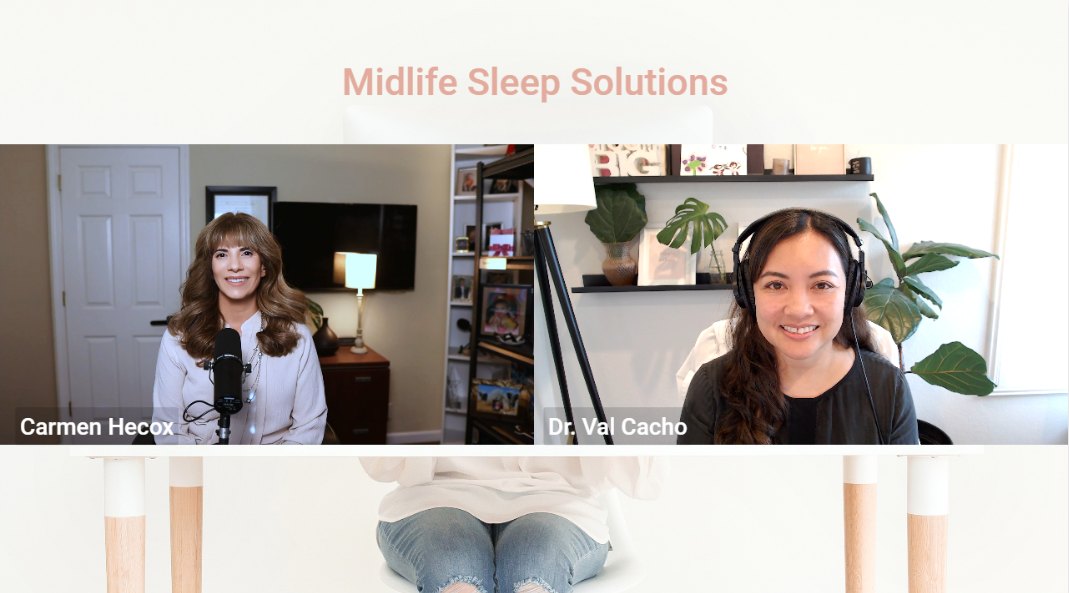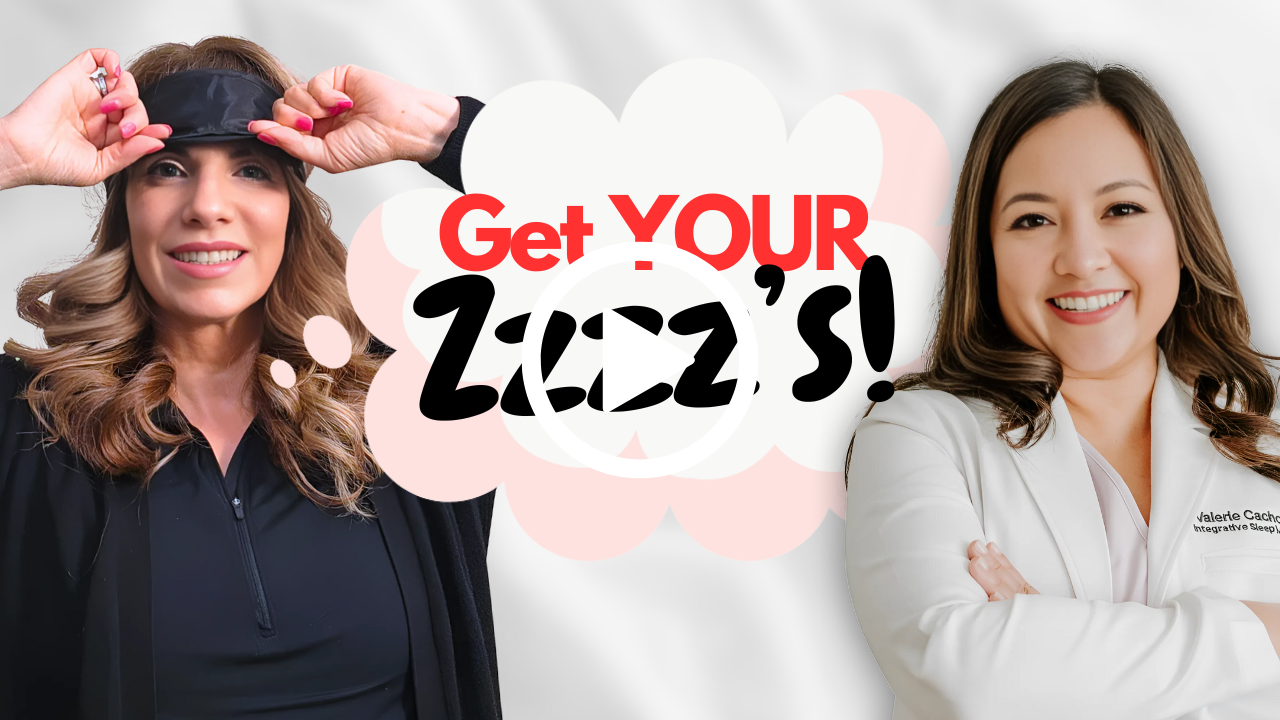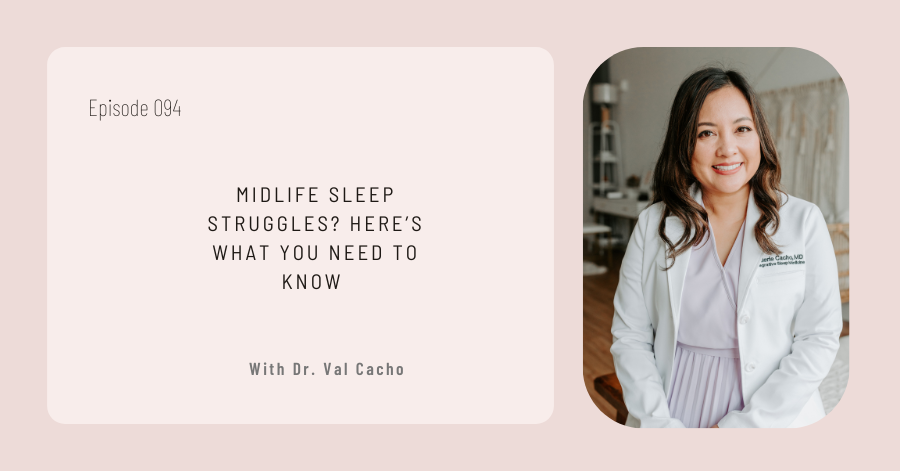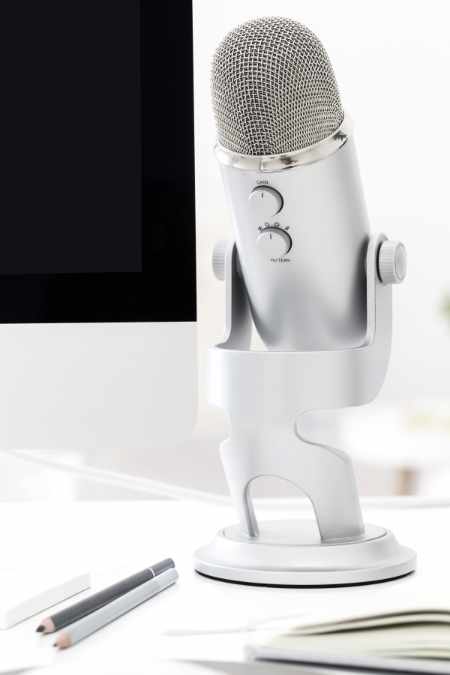Midlife Sleep Struggles? Here’s What You Need to Know
Practical Strategies for Restful Nights and Healthier Days

Why Sleep Feels Elusive in Midlife
Do you ever feel like you’re battling your body for a good night’s sleep? If waking up groggy or lying awake at night has become your norm, you’re not alone. Sleep struggles are a reality for many women during midlife, often linked to hormonal shifts, lifestyle changes, and underlying health conditions. The key to overcoming these challenges lies in understanding the root causes and taking steps to address them.
Today, I’m sharing insights from my conversation with Dr. Val Cacho, an integrative sleep medicine physician and women’s sleep expert. Dr. Val helps women overcome exhaustion and embrace better sleep health through practical, science-backed strategies. Today, we’ll explore why midlife sleep issues occur and uncover actionable solutions to improve sleep quality.
About Dr. Val Cacho
Dr. Val is an integrative sleep medicine physician with expertise in internal medicine and women’s health. She is licensed to practice in Hawaii and California, where she operates Sleep Life Med, her medical practice. Driven by her passion for helping women navigate sleep challenges, especially during perimenopause and menopause, when hormonal shifts often disrupt rest, Dr. Val founded Sleephoria. Sleephoria is a platform dedicated to empowering women to take control of their sleep health and rediscover vibrant living.

Understanding Midlife Sleep Disruptions
Why Hormones Play a Critical Role
During perimenopause and menopause, fluctuating levels of estrogen and progesterone directly affect sleep quality. Lower estrogen can lead to hot flashes, while decreased progesterone, often referred to as the “resting hormone,” can make falling and staying asleep more challenging. These hormonal changes make midlife women more prone to lighter sleep and frequent awakenings.
Beyond Hormones: The Bigger Picture
While hormones are a significant factor, they’re not the whole story. Stress, anxiety, and even physical conditions like sleep apnea can also disrupt sleep. Additionally, lifestyle factors like inadequate physical activity or poor sleep hygiene may exacerbate the problem.

The Mind-Body-Soul Connection
Addressing Sleep Holistically
Dr. Val approaches sleep challenges with a “mind-body-soul” framework. Here’s what that means:
- Mind: Stress and racing thoughts can prevent the brain from entering the relaxed state needed for sleep. Conditions like anxiety or depression often worsen during midlife, further complicating sleep.
- Body: Physical changes, such as aches, pains, and sleep apnea, are common culprits. As we age, the body’s ability to repair itself through deep sleep diminishes, making it harder to wake up feeling refreshed.
- Soul: Emotional well-being and personal fulfillment matter too. Loneliness, unresolved conflicts, or dissatisfaction with life’s direction can keep women awake at night.
Realigning Sleep Habits
Good sleep starts with a routine. Dr. Val emphasizes the importance of creating a wind-down period before bed. Avoid screens, practice mindfulness, and cultivate a calming pre-sleep ritual to transition into rest more smoothly.
Join our community
Connect with like-minded individuals.

Recognizing Sleep Apnea in Women
The Silent Sleep Disruptor
Sleep apnea is often overlooked in women, as its symptoms can differ from men’s. Women may experience insomnia, morning headaches, or fatigue rather than the classic signs of snoring or gasping for air. Studies suggest that up to 90% of women with sleep apnea go undiagnosed.
The Importance of Testing
If you suspect sleep apnea, a home sleep study is an excellent starting point. Today’s technology makes testing more accessible and less invasive than traditional lab studies. Identifying and treating sleep apnea can dramatically improve sleep and overall health.
The Role of Supplements and Sleep Aids
When to Use Sleep Aids
Sleep aids, including melatonin and over-the-counter medications, may provide short-term relief but are not long-term solutions. Dr. Val warns against relying on these aids, as they can mask underlying issues and, in some cases, lead to dependency.
Smart Use of Melatonin
Melatonin can be effective for night owls or those experiencing jet lag but should be used cautiously. Dr. Val recommends starting with a low dose and using it as a tool to regulate your sleep-wake cycle rather than a nightly crutch.
Tracking Sleep and Identifying Patterns
Journaling for Better Sleep
Keeping a sleep journal can help identify patterns and triggers affecting your rest. Track your daily habits, including caffeine and alcohol intake, meal timing, and bedtime routines. Dr. Val suggests reflecting on your journal entries to uncover actionable insights.
Technology’s Role in Sleep Monitoring
Wearable devices can provide helpful data about sleep duration and patterns but shouldn’t dictate your perception of rest quality. Use trackers as a guide, not a definitive measure of your sleep health. Listen to your body and how you feel each morning.

Practical Tips for Better Sleep Tonight
Actionable Steps to Improve Sleep
- Create a Cool, Dark Environment: Ensure your bedroom is at a comfortable temperature and free of light and noise distractions.
- Get Morning Sunlight: Exposure to natural light early in the day helps regulate your circadian rhythm.
- Limit Stimulants: Avoid caffeine and heavy meals close to bedtime.
- Embrace Relaxation Techniques: Practices like meditation, deep breathing, or gentle yoga can ease stress and promote relaxation.
- Seek Professional Guidance: Don’t hesitate to consult a sleep specialist for personalized recommendations.
Small Changes, Big Results
Even small adjustments to your sleep routine can lead to significant improvements. Focus on consistency—going to bed and waking up at the same time daily helps reinforce your body’s natural sleep-wake cycle.
Final Thoughts
Sleep is foundational to our well-being, and midlife presents unique challenges that require tailored solutions. Whether it’s addressing hormonal changes, exploring treatment for sleep apnea, or simply adopting healthier habits, there is hope for better nights ahead.
Are you ready to learn more and stay informed about topics like this? Don’t miss the chance to be part of the journey. Stay connected to receive updates on upcoming events and insightful content designed to help you create your best life—starting with a good night’s sleep.
Watch the complete interview here.

Resources Mentioned:
Subscribe to Apple Podcasts, and don't forget to Rate and Review
Like what you heard? If so, please rate and comment on Apple Podcasts. And while you are there, let me know what you want to hear next.
And while you are there, don't forget to hit Subscribe.


